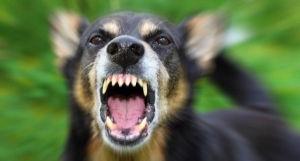Bites from Stray Animals Down
Recently, the cases of Tbilisi residents complaining to their doctors that they were scratched by a cat or bitten by a dog have increased, Head of the anti-rabies service at the Immunization Center, Badri Bazaeav, said at a press conference.
However at this point in time, the bites of stray animals are nearly zero, in comparison with previous years.
"Unfortunately, it often happens that one or the same patient comes to get an inoculation (from rabies) several times a year, and sometimes they come to me with quite serious injuries, including bites from their own dog, with torn tendons and other injuries. I do not think that it's normal when the dog brings you to such a state that you can barely keep your foot and it's still kept at home," Bazaeav stated.
Wounds resulting from bites or scratches of animals should be washed with soap, and if they bleed, the victim should cover them with a sterile bandage and go to the doctor. Bazaeav explained that vaccination can be done as many times as necessary, as is for the doctor must decide.
"Stray animals can bite a person whilst trying to protect their young, however, in other cases, the reason may be self-defense against human aggression or a mental disorder of the animal," explained Head of the Animal Monitoring Service of Tbilisi City Hall, Vakhtang Lomjaria.
"The owners often do not care to train their animals: they do not walk their dogs correctly, do not use muzzles. They keep the animal worth several hundred dollars, but do not observe the requirements set by the law and do not castrate them. If they run away from home, and there is no chip, the animal cannot be found," Lomjaria said.
People do not take the time necessary to discipline their pets, and so it results in a rebellious animal. When stray dogs gather in packs, it can pose a threat as they tend to be more aggressive than individual dogs. "You should always avoid such packs when they are spotted," Lomjaria warned.
The rules of euthanasia for street and agressive dogs have been are tightened and the process is monitored as much as possible, meaning an animal is often only neutralized if it has an infectious or incurable disease.
By Shawn Wayne












